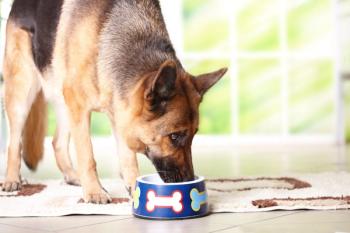
Toxicology Brief: Pet food recall: Aminopterin and melamine
Two substances, aminopterin and melamine, have been identified in some of the tested samples of the recalled pet foods manufactured by Menu Foods (www.menufoods.com). How these substances entered the pet food chain hasn't been determined. Investigators also don't know whether these substances are the sole cause of the illness associated with ingestion of the recalled food; other as yet unknown factors are likely to be involved.
Two substances, aminopterin and melamine, have been identified in some of the tested samples of the recalled pet foods manufactured by Menu Foods (
Aminopterin is an antineoplastic agent and an antimetabolite. At high doses, it can cause crystalluria.
Melamine is utilized in the production of some plastics and is apparently utilized in some fertilizers in Asia. The significance of finding melamine in the pet food at this point is unclear.
Some animals that ingested the recalled pet food and developed acute renal failure and died had unusual crystals in their renal tubules. The precise composition of the crystals hasn't yet been determined.
Animals that have ingested the recalled pet food may exhibit lethargy, vomiting, diarrhea, anorexia, polyuria, and polydipsia. A physical examination, CBC, serum chemistry profile, and urinalysis are recommended in symptomatic animals that have ingested a recalled food. Treatment includes hydration and diuresis. Alkalinization, such as adding sodium bicarbonate to intravenous fluids, may help dissolve the renal crystals. Animals that are treated immediately or soon after exposure can recover.
If an animal dies or is euthanized because of illness related to ingestion of a recalled pet food, tissue samples can be submitted to a diagnostic laboratory for further analysis, or the body can be submitted for necropsy and analysis.
Visit
Dr. Volmer is an assistant professor at the College of Veterinary Medicine, University of Illinois, Urbana, IL 61802. She department editor for "Toxicology Brief."
Newsletter
From exam room tips to practice management insights, get trusted veterinary news delivered straight to your inbox—subscribe to dvm360.



